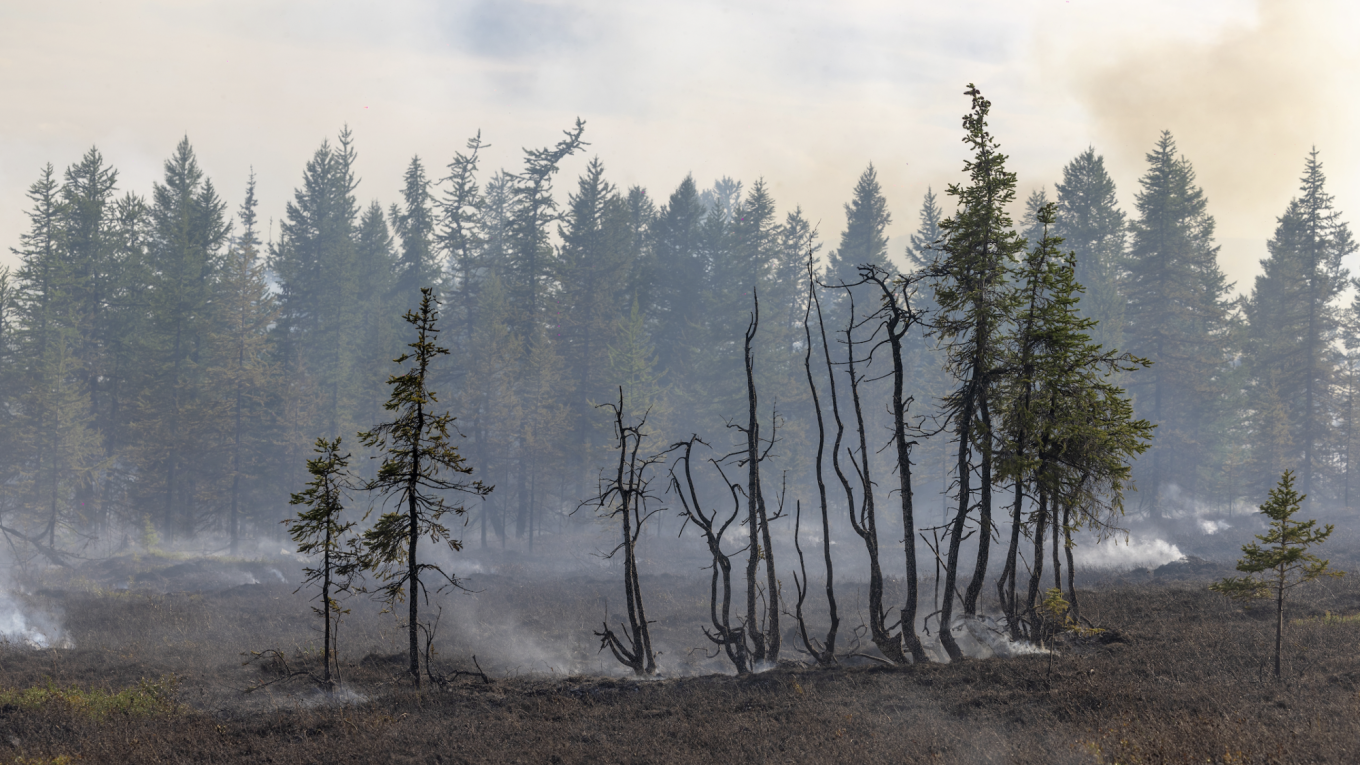Yegor Chastukhin, an 18-year-old environmental activist, holds a flask to a drain spurting out warm, putrid water near the historic city of Penza in western Russia.
"It smells like herbal tea," he jokes after taking a waft of the sample while Sonia, his wife, jots down notes.
She records the odor and its yellowish color as two other teenage activists, Alexei Zetkin and Yakov Demidov, look on.
The water's source is a nearby paper factory previously fined for pollution. Its destination is a tributary of the Sura river, around 600 kilometers (372 miles) from Russia's capital Moscow.
The group carries out a spot test on the liquid, which shows excess levels of chlorine, iron and organic matter.
"People who drink this water, fish in it and bathe in it need to understand the danger," Yegor told AFP.
The chances of that happening are slim.
Environmental groups in Russia not linked to the government — those like Yegor's — have long faced pressure from authorities.
And since an unprecedented crackdown on dissent launched after Russia's full-scale military intervention in Ukraine, their future is in doubt.
Russia has outlawed the work of Greenpeace and the World Wide Fund for Nature, branding them and dozens of other Western-linked groups "undesirable".
The exiled coordinator of the climate action nonprofit Bellona, Ksenia Vakhrusheva, told AFP there were no longer any Russian environmental organisations powerful enough to bring about "systemic change".
'Threat to the state'
What remains of ecological advocacy in Russia rests on the shoulders of under-resourced activists like Yegor, who are still trying to raise awareness in spite of the risks.
"What we're doing is legal and harmless. But tomorrow they could link it to extremism or terrorism. The slightest transmission of information could become an alleged threat to the state," Yegor says.
Suddenly, a press officer and factory employee holding a camera arrive on the scene, with the rag-tag group taking off after a security guard appears — a move that is sometimes followed by a police visit.
Several meters away, men under some trees continue to fish the polluted water.
The group regularly inspects rivers and dumps. Together with a more experienced activist with a legal background, they report violations to local prosecutors or the environmental protection agency.
Sometimes with surprising success.
In November 2021, Yegor and his friend Alexei, then high school students, tested the water discharged by the paper factory.
'Small victories'
Alexei sent the results to the authorities, who fined the factory manager about $5,000 after confirming the violations.
The factory is run by a local politician from the Kremlin-loyal United Russia party, and says it has since invested in modernizing its equipment.
Following the probe, Alexei, then a member of a pro-government environmental group, was accused of carrying out the inspection without the approval of his superiors and kicked out.
In February last year, he set up Eko-Start, and he and Yegor campaign together.
After the factory, activists and AFP journalists visited a landfill outside Penza, a jumble of rotting vegetables, batteries and medical waste emitting toxic fumes.
"The owners of the dump are high-ups in the region. They save money by not sorting the waste and not respecting the rules on storage," Alexei said.
Alexei met Yegor in the Komsomol, the youth wing of the Russian Communist Party, which, though subservient to the Kremlin at the national level, sometimes represents opposition locally.
Both have since left the group.
Yegor describes himself as a "Trotskyite-internationalist", saying he is against "Stalinists" and political repression.
While many young Russians are apolitical or support President Vladimir Putin, Alexei thinks the conflict in Ukraine has politicized many, and pushed some to take a stand in opposing — or supporting — the government.
"If you don't do politics today, politics will come for you tomorrow," he says.
A Message from The Moscow Times:
Dear readers,
We are facing unprecedented challenges. Russia's Prosecutor General's Office has designated The Moscow Times as an "undesirable" organization, criminalizing our work and putting our staff at risk of prosecution. This follows our earlier unjust labeling as a "foreign agent."
These actions are direct attempts to silence independent journalism in Russia. The authorities claim our work "discredits the decisions of the Russian leadership." We see things differently: we strive to provide accurate, unbiased reporting on Russia.
We, the journalists of The Moscow Times, refuse to be silenced. But to continue our work, we need your help.
Your support, no matter how small, makes a world of difference. If you can, please support us monthly starting from just $2. It's quick to set up, and every contribution makes a significant impact.
By supporting The Moscow Times, you're defending open, independent journalism in the face of repression. Thank you for standing with us.
Remind me later.






